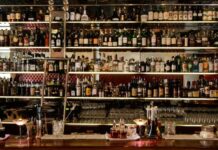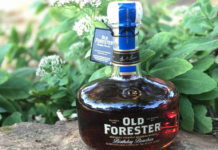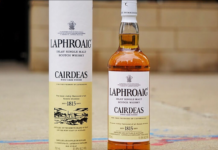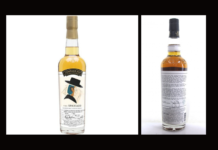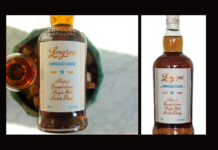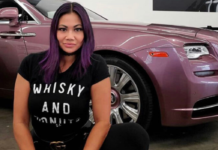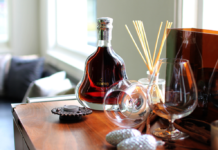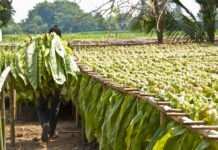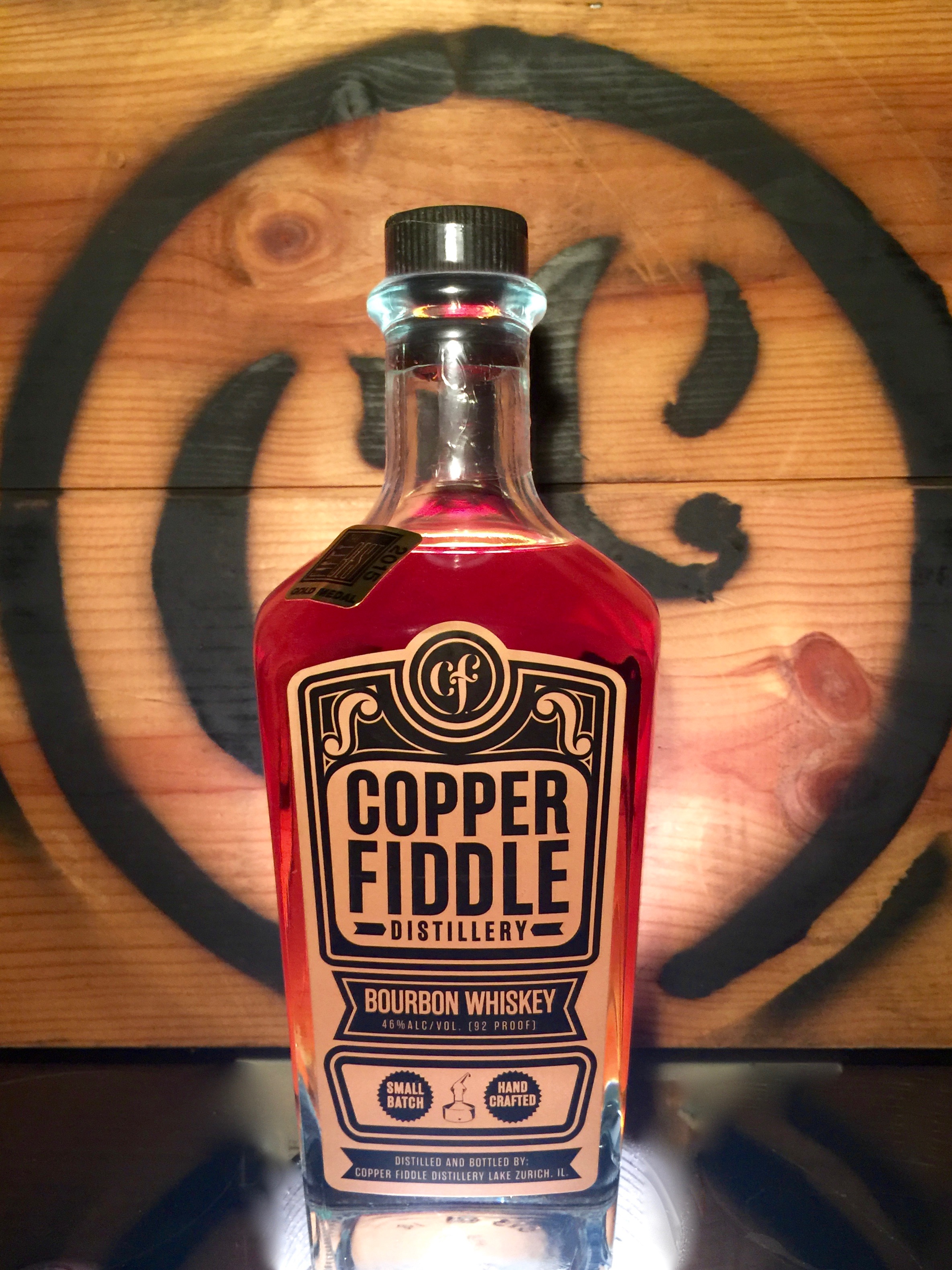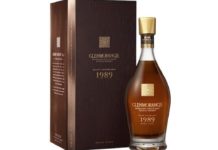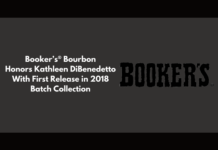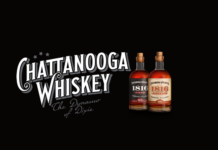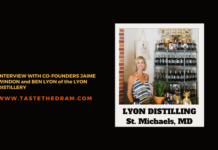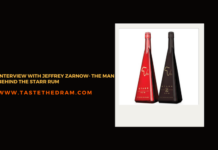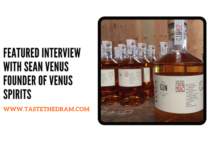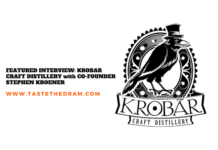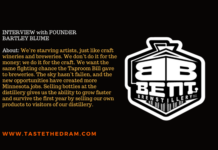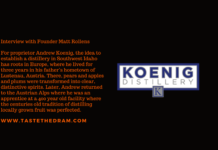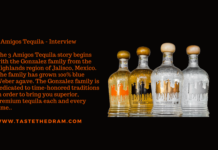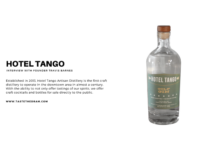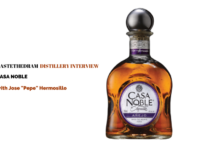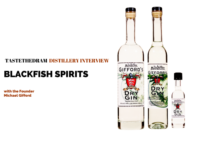Taking advantage of newly legislated Illinois Craft Distillery laws, Jose Hernandez, an architect, and Fred Robinson, a PGA Golf Professional, set out in the summer of 2012 to create their own unique, high-quality spirits. Starting from scratch, using a 13 gallon stainless steel still, each batch seemed to get better than the prior one. After many attempts, Jose created a bourbon whiskey and two gin recipes that had their friends and family singing his praises. The rest, they say, is history. Tastethedram spoke to Nancy Hernandez, wife of Jose Hernandez about what it takes to make quality whiskey in Illinois.
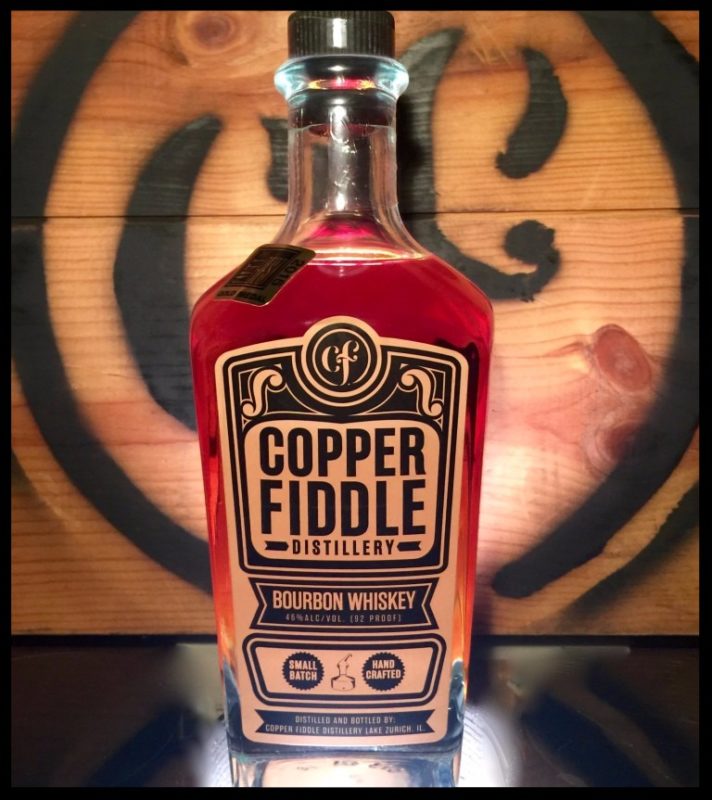 Tell us about yourself. What were your career history before getting into this business?
Tell us about yourself. What were your career history before getting into this business?
NH: Co-founder Jose Hernandez’ career history is Architecture specializing in IT data centers. Co-founder Fred Robinson is a lifetime member of the PGA, having managed courses and provided golf instruction nationally and internationally.
Please tell me how the Copper Fiddle Distillery came about? What was your vision for the project. Tell us about the name.
NH: Copper Fiddle Distillery came about as Jose and Fred developed gin and whiskey recipes and quickly saw the opportunity of a young craft spirit industry in Illinois. The vision was to start a local distillery that caters to the tastes of new spirit lovers. We wanted to create a destination that included a fun, casual place to hang out in the neighborhood and enjoy our unique cocktails, educational tours and local, live entertainment. We also wanted to create an innovative brand that represents the quality of our small batch, hand crafted product.
The name came about as a collaboration of the hand-made copper pot still we use in the manufacturing of our spirits and the family heirloom violin that was hand-made in Chicago in 1906.
What exactly does your job entail?
NH: Being a family-owned small business means that you do everything. We are responsible for the production of the spirits, the marketing and sales of our brand, customer service, and government and regulatory requirements, just to name a few.
What whiskey expressions do you currently produce, and how are they all different?
NH: We currently make (6) different products:
a. Classic Bourbon Whiskey
b Genever style clear gin (Fiddle Gin)
c. Tom Gin, aged on used whiskey wood for a period of time
d. Fyren Gin, a first of it’s kind in the USA. Our Fiddle Gin infused with a char-roasted & gill cut Serrano Pepper in each bottle.
e Silver Rum, sugar and molasses based
f. Gold Rum, sugar and molasses based and briefly aged on our whiskey wood
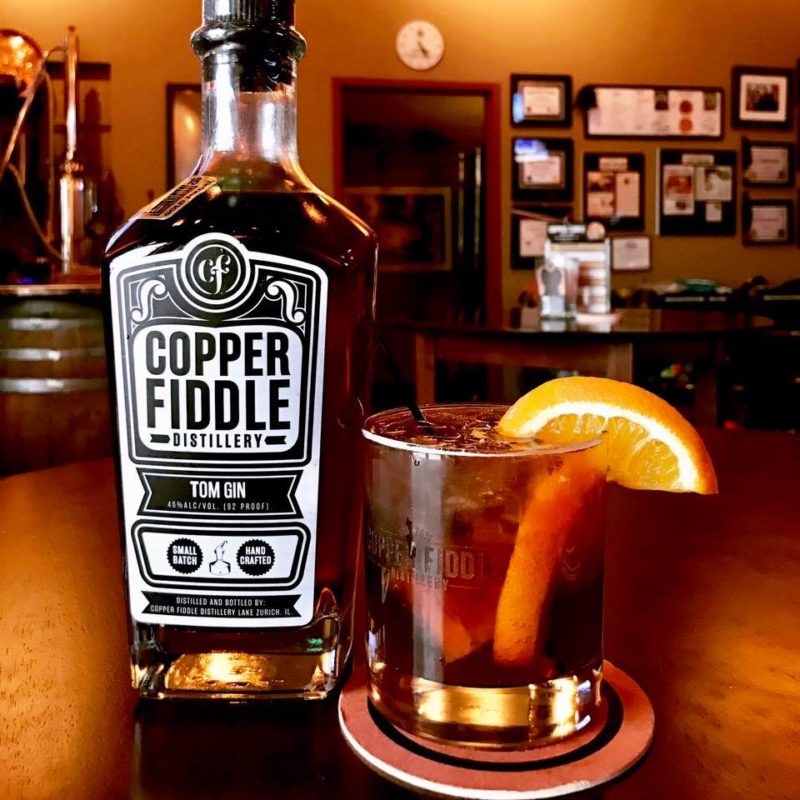 Where do you think the most flavor control can occur? Grain? Yeast? Water? Wood?
Where do you think the most flavor control can occur? Grain? Yeast? Water? Wood?
NH: Definitely the wood.
Do you think that your product is distinctive? If so, what makes it distinctive from other whiskies on the market?
NH: All of our products are distinctive in their own way. The Bourbon is distinctive based upon our selection of grains, our process and the barrels we choose.
Name a few other distillers or distilleries who inspire you.
NH: That is a difficult question to answer. The best way to respond is to say that all of the local distilleries in Chicagoland have something different to offer. Each and every one has a unique flavor, slant and product style that will entice someone.
When you began distilling were you aiming for a certain style of whiskey or liquor?
NH: No, we were simply aiming for a well flavored, rounded and balanced Whiskey.
Where or who do you feel is the driving, innovative force behind our craft distilling industry right now?
NH: All of the small distillers that are striving to bring their unique versions of classic products to market, combined, make up the driving force in our industry.
What’s the best thing about working at Copperfiddle?
NH: The ability to create and bring new styles of products to the market and watch the customers’ enjoyment of our spirits, cocktails, and overall experience at Copper Fiddle Distillery.
What have been the main challenges involved in setting up a new distillery?
NH: Definitely the governmental challenges of regulation and reporting. Those are the most tedious. All of the other challenges are refreshing in their very nature.
And what has been the part you’ve enjoyed most?
NH: The most enjoyable part has been developing a following of our products, customers who come back over and over again.
What are your hopes for the distillery 5 years from now? What do you want to be known for?
NH: Our hopes are that the followers of our brand and liquor styles will share with their friends, and on and on… what we have created, to evolve into an established local brand that will survive from generation to generation.
Anything else you’d like to share with our readers?
NH: We are thankful for the positive response and support of our customers. We look forward to continuing our journey of being recognized as one of the best craft distilleries in Illinois and other markets in the future.


